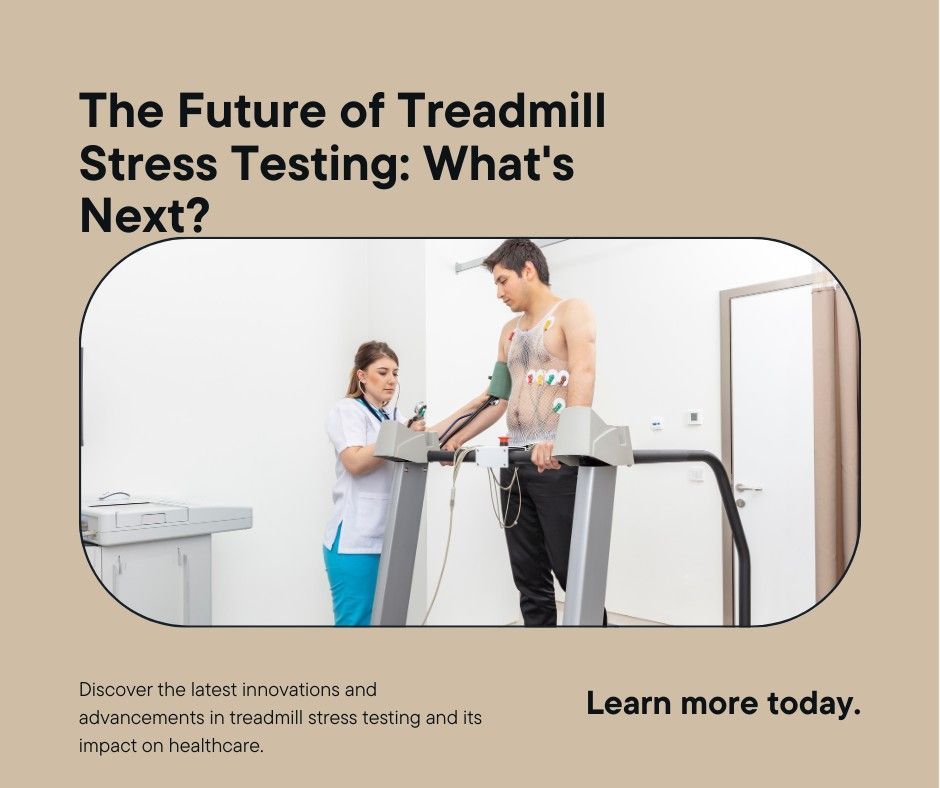In the heart of town, a small community known for its innovative approach to healthcare, a story unfolds that could very well illustrate the future of medical diagnostics. Imagine a local athlete, Alex, who, after experiencing unusual fatigue during training, visits a clinic equipped with the latest in medical technology. The focus of Alex’s visit is a procedure many are familiar with but few truly understand in depth: the Treadmill Stress Test. This test, a cornerstone in diagnosing cardiovascular conditions, is on the cusp of a transformation that promises to redefine its role in healthcare.
The Treadmill Stress Test, traditionally a straightforward method to evaluate the heart’s response to exercise, is evolving. As we stand on the brink of a new era in medical technology, the integration of digital innovations and artificial intelligence (AI) into this test is not just a possibility—it is an imminent reality. These advancements aim to enhance diagnostic accuracy, personalize patient care, and streamline the testing process, thereby offering profound benefits to both the healthcare industry and patients alike.
Digital Innovations: A New Pulse on Diagnostics
Digital technology is set to revolutionize the Treadmill Stress Test by providing more precise and comprehensive data analysis. Wearable technology, for instance, can continuously monitor vital signs and biometric data, offering a more detailed picture of a patient’s cardiovascular health. This real-time data collection extends beyond the confines of the test itself, providing insights into the patient’s heart function during various daily activities.
Furthermore, the integration of digital platforms facilitates seamless communication between patients and healthcare providers. Patients can easily share their health data and receive personalized advice, enhancing the continuity of care. For healthcare providers, these platforms offer a centralized repository of patient data, improving diagnostic accuracy and patient management.
AI Integration: The Heartbeat of Innovation
AI stands poised to transform the Treadmill Stress Test from a diagnostic tool into a predictive and prescriptive instrument. Machine learning algorithms, trained on vast datasets of patient health records, can identify subtle patterns and predictors of cardiovascular conditions that may elude human analysis. This capability not only enhances the diagnostic accuracy of the Treadmill Stress Test but also enables the early detection of potential health issues before they become symptomatic.
Moreover, AI can personalize the testing protocol for each patient, adjusting the intensity and duration of the test based on the individual’s health status and risk factors. This personalized approach reduces the risk of adverse events during the test and ensures that the data collected is both relevant and reliable.
The Role of Ecotown Diagnostics
Ecotown Diagnostics stands at the forefront of this transformative journey, offering advanced Treadmill Stress Testing services that incorporate the latest digital and AI technologies. By harnessing these innovations, Ecotown Diagnostics enhances the diagnostic capabilities of the Treadmill Stress Test, providing healthcare professionals and patients with accurate, timely, and actionable insights into cardiovascular health.
The Patient-Centric Approach
The future of Treadmill Stress Testing is not solely about technological advancements; it is also about adopting a more patient-centric approach. Tailoring the testing experience to meet the needs and preferences of individual patients can significantly improve patient comfort and compliance. Virtual reality (VR), for example, can be used to create more engaging and less intimidating test environments, potentially reducing anxiety and improving the overall patient experience.
Ethical Considerations and Data Security
As with any technological advancement, the integration of digital innovations and AI into Treadmill Stress Testing raises important ethical considerations and data security concerns. Ensuring the privacy and security of patient data is paramount, as is maintaining transparency regarding the use of AI in diagnostic processes. Healthcare providers must navigate these challenges carefully to maintain patient trust and uphold ethical standards.
Conclusion
The future of Treadmill Stress Testing is bright, with digital innovations and AI integration set to redefine its role in diagnosing and managing cardiovascular diseases. These advancements promise to enhance diagnostic accuracy, personalize patient care, and improve the overall efficiency of the healthcare system. As we move forward, it is essential to balance technological innovation with ethical considerations and a patient-centric approach.
In this evolving landscape, Ecotown Diagnostics remains committed to leveraging the latest advancements in Treadmill Stress Testing to benefit the healthcare industry and patients. The journey ahead is filled with potential, and as we navigate the future of medical diagnostics, one question remains: How will these innovations shape the next chapter in patient care?








